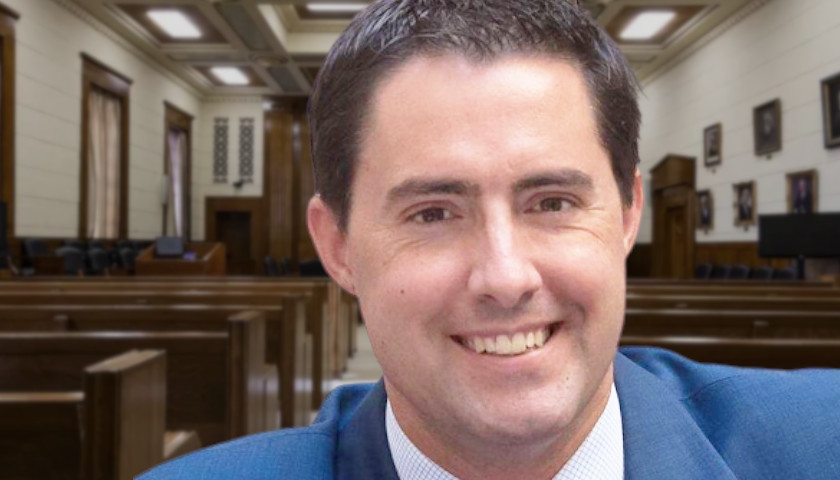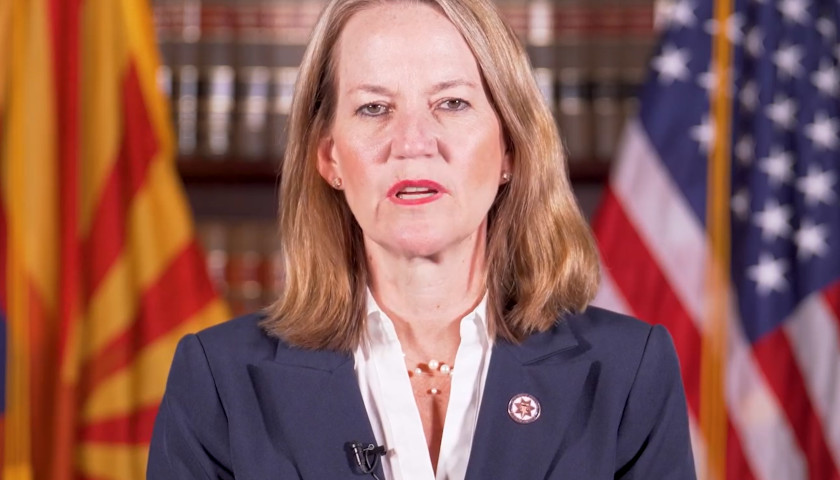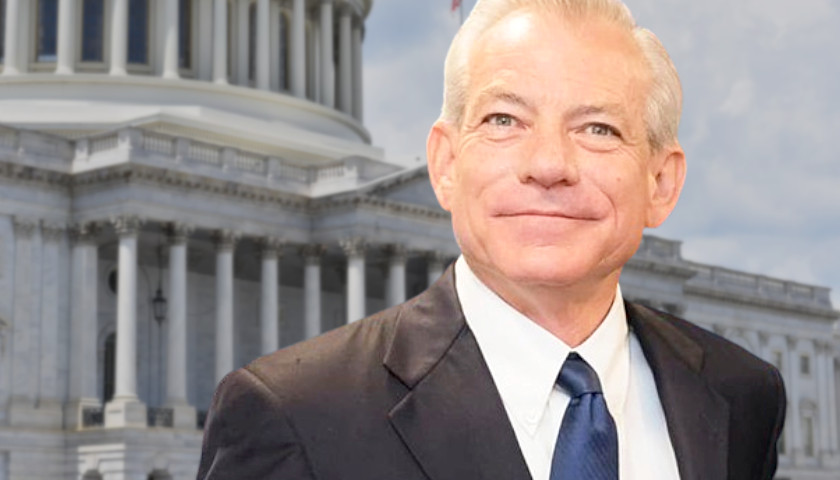Attorneys for the Elias Law Group announced over the weekend they are representing several left-leaning institutions seeking to nix Ohio’s new law requiring voters to show photo identification to participate in an election.
The Northeast Ohio Coalition for the Homeless, the Ohio Federation of Teachers, the Ohio Alliance for Retired Americans and the Union Veterans Council are listed as plaintiffs in the lawsuit against Ohio Secretary of State Frank LaRose (R). The firm working the case is headed by Marc Elias who has handled cases for Democrats in the 2020 presidential contest and numerous other national elections.
Elias lawyer Abha Khanna filed the new complaint in the U.S. District Court for the Northern District of Ohio Eastern Division, arguing the ID rule imposes a burden so great as to violate the First and Fourteenth Amendments to the U.S. Constitution. The attorney dismissed any possibility that the measure could prevent voter fraud and said it will lead to some residents’ disenfranchisement.
Khanna’s clients furthermore object to a section of the legislation shortening the period after Election Day during which voters can “cure” or correct technical errors on provisional or mail-in ballots from seven days to four days. Petitioners also oppose provisions moving the deadline for a voter to request a mail-in ballot from three days to one week prior to Election Day and moving the ballot-return deadline from 10 days after Election Day to four days after the election.
“[House Bill] 458 is a sweeping attack on Ohioans’ fundamental right to vote,” Khanna said in a statement. “This bill makes it substantially harder for Ohioans to vote in person and by mail, and makes it harder to correct simple mistakes that prevent ballots from being counted…. While election fraud is virtually nonexistent in Ohio, voter suppression is, unfortunately, alive and well.”
Governor Mike DeWine (R) signed the bill last week, making Ohio one of nine states with a strict photo-ID requirement. The Buckeye State heretofore instructed voters to provide identification that could either be photographic in the form of a driver’s license or state-ID card or alternatively non-photographic like a bank statement or a utility bill.
Upon the legislation’s enactment, LaRose cited an array of public-opinion surveys showing broad approval of photo-ID requirements for voting. Several surveys from such organizations as National Public Radio, the Pew Research Center and the conservative Honest Elections Project indicated majorities of Democrats as well as Republicans backed such rules. ‘
“Ohioans overwhelmingly support requiring photo voter ID and this week it became Ohio law,” the secretary stated in a Twitter post on Sunday. “As county boards start implementing these changes, election security, voter confidence and participation will just keep improving!”
In a year-end review, LaRose reported that his office referred 630 cases of potential election fraud to law enforcement since he took office in January 2019. Those included 510 allegations of voting by noncitizens, 97 potential instances of individuals voting in more than one state and 23 allegations of fraudsters using dead persons’ registrations to vote.
Hans von Spakovsky, manager of the D.C.-based Heritage Foundation’s Election Law Reform Initiative, lauded Ohio and other states for implementing voter-ID laws to make fraud more difficult. He noted his organization’s Election Fraud Database now contains 1,400 confirmed cases of election fraud.
“Requiring an ID to vote is the same type of basic security used for everything from buying a gun to getting a marriage license to boarding an airplane to applying for public welfare benefits,” he told The Ohio Star via email. “It will improve the security of the election process, particularly with absentee or mail-in ballots that are particularly vulnerable to fraud.”
Von Spakovsky expressed confidence that the Ohio law will withstand judicial scrutiny as similar statutes in other states have. Another center-right election expert, R Street Institute Governance Program fellow Matthew Germer, agreed that such laws don’t harm electoral participation.
Citing analysis from the National Bureau of Economic Research, Germer however voiced skepticism that voter fraud occurs often enough that voter ID requirements detectably reduce it, though he added that telling voters to submit IDs also does not demonstrably suppress freedom to vote. He noted ID laws have strong public support and can actually correlate with higher voter turnout.
“Either way, voter ID is wildly popular across the political spectrum and shouldn’t be considered a threat to democracy,” he told The Star. “It’s best advanced alongside other reforms that increase access to the voting process.”
Germer suggested that Ohio policymakers could maximize confidence in the process by keeping the ID rule and offering free ID cards to Buckeye State voters who lack driver’s licenses.
The new state election-reform measure also contains provisions limiting absentee-ballot drop boxes to one per county and eliminating local August special elections, except in jurisdictions that are dealing with fiscal emergencies.
– – –
Bradley Vasoli is managing editor of The Ohio Star. Follow Brad on Twitter at @BVasoli. Email tips to [email protected].
Photo “Frank LaRose” by Frank LaRose.








